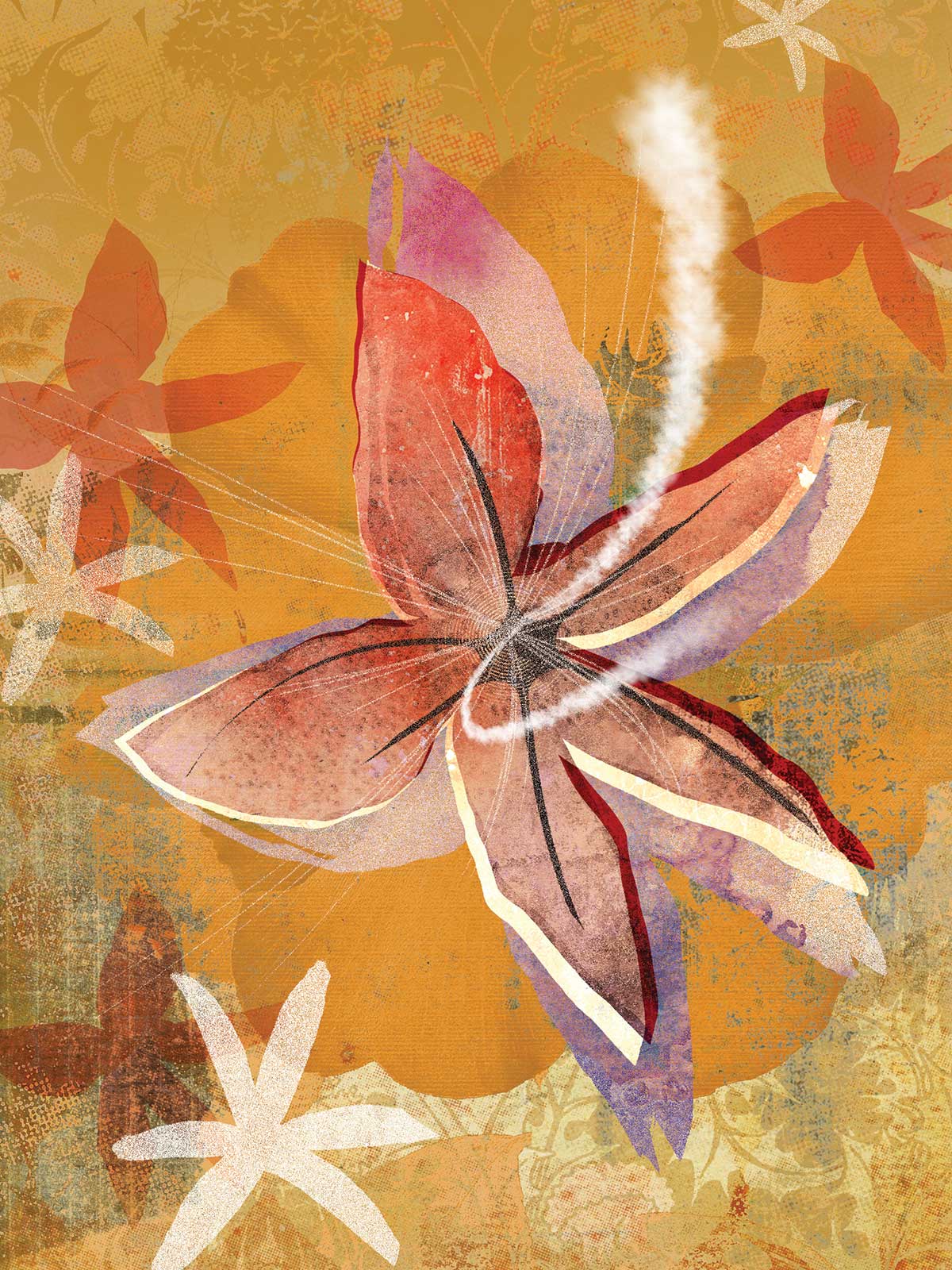The beautiful bluebonnet is Texas’ beloved state flower, the delicate monarch butterfly its official insect, and delicious pecan pie is the designated dessert. So how did an inedible fungus that hisses and spews “smoke” claim the prized mushroom designation in the Lone Star State? Shouldn’t it instead be something tasty that can be fried and dipped in ranch dressing?
The Texas star mushroom, whose Latin name is Chorioactis geaster and is also known as the devil’s cigar, became the state mushroom because it possesses some other distinctive traits.
First, it’s an extremely rare mushroom, found sparingly in about 16 counties in Central and North Texas and thousands of miles away in a small section of Japan. There seems to be no scientific explanation as to why this mushroom exists only in two far-apart locations. (It was also spotted a few years ago just over the border in Oklahoma, but let’s ignore that for now.)
Second, when its blackish cigar-like body opens, its stalks form a shape similar to the iconic Texas star.
“It is so distinct that when you see it, you can’t confuse it with something else,” says Harold W. Keller, a mycologist and resident research associate at the Botanical Research Institute of Texas in Fort Worth.
The mushroom, which looks nothing like a garden-variety toadstool, was first identified in Austin in 1893. It was never a widely known fungus in Texas, but the mushroom’s fortunes started to shift in early 2021 when Randal Banik discovered the unique species on his family’s property in Round Top in Fayette County.
Banik, a member of the Central Texas Mycological Society, had seen the star in the Austin area where he lives.
You really have to know where to look for it. Texas star mushrooms are pretty picky about their habitat, almost always attaching to decaying cedar elm stumps. They fruit in cooler months, generally September–March, and they love wet ground.
On that chilly day on the family property, Banik went walking along a creek valley, hoping—but not really expecting—to find anything special.
“But lo and behold, I found one!” says Banik, a member of Fayette Electric Cooperative.
His discovery prompted a story in The Fayette County Record as well as conversations with a fellow mushroom enthusiast about getting the state designation. They met with then-state Rep. Ben Leman, who agreed to sponsor legislation in the 2021 session to make it the state mushroom.
“We told him what a unique opportunity this was for the state,” Banik says, noting that only Oregon and Minnesota had also designated official mushrooms. (Utah and California have since followed suit.) “He was really excited about it.”
In a statement of support for the measure, Leman noted that when the mushroom opens, it “has a starlike shape that makes it seem custom designed for the Lone Star landscape. A poignant reminder of the natural diversity that surrounds us, the Texas star mushroom is as uncommon and striking as the state that serves as its home, and it is indeed deserving of special recognition.”
The proposal overwhelmingly passed the Texas House and Senate and was signed by Gov. Greg Abbott in June 2021. Texas had its official shroom.
Unopened, the cigar-like mushroom is covered with fuzzy hairs. When it blooms, it’s typically the color of tan leather and has four to six spears that form the star shape. It will shoot out spores to launch a new generation of Texas stars, causing puffs of whitish “smoke” and a sound like air being released from a tire.
“It forces spores out with so much force it makes this hissing sound,” Keller says. Texas stars are typically several inches tall and about two or three inches wide. The mushroom isn’t poisonous, but it’s not edible either.
“It’s tough, woody. You wouldn’t want to eat it,” Keller says.
Banik says the designation as Texas’ state mushroom has sparked new interest in it, though it remains difficult to find, and research about it continues. The Central Texas Mycological Society offers Texas star mushroom walks in the Austin area in the fall and winter.
“There’s more to come, more to know,” Banik says.



